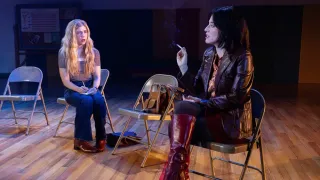August 14, 2020
Gay Former Trump Appointee Criticizes Biden VP Pick in Odd Tweet
Kevin Schattenkirk READ TIME: 1 MIN.
Former U.S. Ambassador to Germany and staunch Trump supporter Richard Grenell – an openly gay man – tweeted a somewhat peculiar response to the Biden campaign's choice of Kamala Harris (D-CA) as a running mate:
Grenell's tweet includes a link to a Fox News article featuring a Biden quote from 1973 – 47 years ago – about whether gay people could serve in the military: "My gut reaction is that they [homosexuals] are security risks, but I must admit I haven't given this much thought... I'll be darned!" The FOX article then goes on to stack up Biden's LGBTQ+ credentials with those of the current President, while failing to mention the ways in which the Trump administration has worked to dismantle pro-equality policies.
On the surface level, Grenell's tweet appear to take Biden to task by implying anti-LGBTQ+ bias. Though one wonders what grievances Grenell might have publicly lodged if Biden's running mate had been South Bend, Indiana Mayor Pete Buttigieg or Wisconsin Senator Tammy Baldwin.






